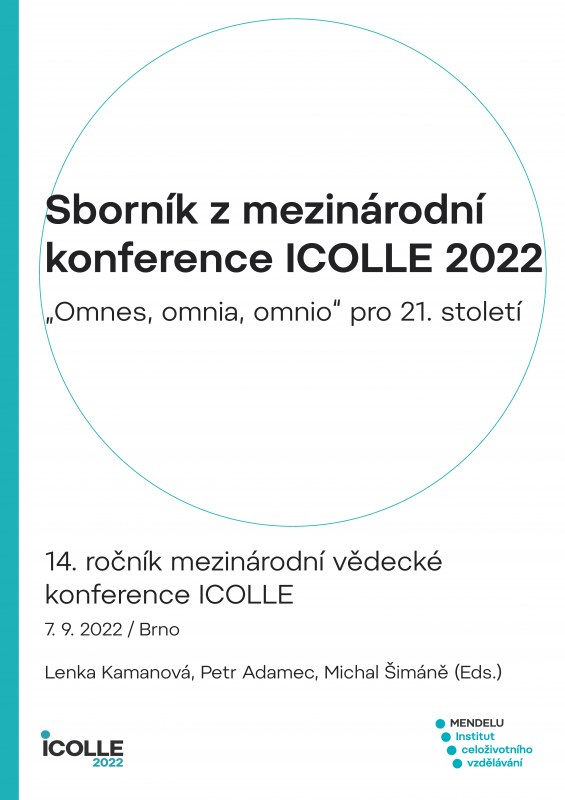
DOI: 10.11118/978-80-7509-922-8-0016
MATERINSKÝ JAZYK A JEHO PRESTÍŽ V SYSTÉME HODNÔT SLOVENSKÝCH UČITEĽOV V MAĎARSKU
- Mária Ďurkovská, Lucia Heldáková
One of the important aspects of the development of each minority is language issues. As one of the objective criteria for defining ethnicity, the mother language is one of the basic ethnointegrating elements on which each minority builds its identity. The mother tongue is considered to be a co-determining or determining feature of ethnicity. The mother language has specific functions for ethnic groups living in minority positions, as it is a universal means of maintaining their individuality. In this sense, it occupies an important position in the system of preferred values of the individual. The paper aims to verify the hypotheses about language preferences in the system of values of language teachers in Slovak schools in Hungary. The authors established the following hypotheses: H1: language teachers attributed higher average scores to the mother tongue in the value system; H2: language teachers who consider Slovak as their mother language has given a higher prestige to the Slovak language in the hierarchy of values; H3: language teachers who considered Slovak and Hungarian as their mother language, attributed identical prestige to both languages in the hierarchy of values. The paper analyzes data from a questionnaire survey on a sample of 139 teachers of national schools. The criteria for selecting the research sample were employment (current or past work as a teacher teaching Slovak or in Slovak) and the availability of the respondent regardless of the identification criteria (age, location, gender). We processed the obtained research results using descriptive statistics methods (in IBM SPSS, version 21). The results of the analyzes did not confirm any of our hypotheses. We found that language teachers in Slovak schools in Hungary did not assign a higher average score to their mother tongue than teachers of other approbations. The findings on hypotheses 2 and 3 showed us that all language teachers, regardless of their mother language, always attributed higher average scores to the Hungarian language.
Keywords: values, mother language, national education, teachers, Hungary
pages: 16-23, online: 2023
References
- Bradley, D. & Bradley, M. (2002). Language Endangerment and Language Maintenance: An Active Approach. New York: Routledge. European Values Study. Dostupné na: https://is.muni.cz/repo/856411/Hodnoty_a_postoje_yqmbvabi.pdf
- Homišinová, M. (2000). Používanie slovenského jazyka v rôznych komunikačných situáciách (z výskumu slovenskej menšiny v Maďarsku). Človek a spoločnosť, 3(1), 116-123. Dostupné na: http://www.clovekaspolocnost.sk/sk/rocnik-3-rok-2000/1/studie-a-clanky/pouzivanie-slovenskeho-jazyka-v-roznych-komunikacnychsituaciach-z-vyskumu-slovenskej-mensiny-v-madarsku/
- Homišinová, M. (2008b). Národnostný život Maďarov na Slovensku (kultúrno-jazykový aspekt). Člověk a spoločnosť, 11(4), 54-76. Dostupné na: https://individualandsociety.org/storage/uploads/casopis/2008/4/narodnostny-zivot-madarov-na-slovensku-kulturno-ja/narodnostny-zivot-madarov-na-slovenskukulturno-jazykovy-aspekt.pdf
- Homišinová, M., Slančová, D., Výrost, J. & Ondrejovič, S. (2011). Výskum hovorenej slovenčiny slovenskej mládeže v Maďarsku a na Slovensku. Košice: SvU SAV.
- Homišinová, M., Výrost, J. & Ďurkovská, M. (2018). Spoločenskovedné súvislosti hovorenej slovenčiny mladej generácie Slovákov žijúcich v krajinách na Dolnej zemi (Chorvátsko, Srbsko, Rumunsko, Maďarsko). Košice: Spoločenskovedný ústav CSPV SAV.
- Hutnik, N. (1992). Ethnic minority identity: A Social Psychological Perspective. Oxford: Clarendon Press.
 Go to original source...
Go to original source... - Hyltenstam, K. & Stroud, C. (1991). Språkbyte och språkbevarande. Om samiskan och andra minoritetsspråk. Lund: Studentlitteratur AB.
- Herrlitz, W., & van de Ven, P. H. (2007). Comparative Research on Mother Tongue Education: IMEN's Aims, Points of Departure, History and Methodology. In: Herrlitz, W. Ongstad, S. & van de Ven, P. H. Research on Mother Tongue Education in a Comparative International Perspective. Theoretical and methodological issues. Amsterdam: Rodopi, pp. 13-43.
 Go to original source...
Go to original source... - Lásik, M. (2018). Stav a možnosti fungovania slovenskej (etnickej) identity v školách v Maďarsku v zrkadle učebných vzdelávacích programov, osnov, systému maturitných požiadaviek a meniacej sa doby. Slovenčinár, 2018/2019, 68-76.
- Pearce, M. (2007). The Routledge Dictionary of English Language Studies. London: Routledge.
- Pintér, T. (2011). Diglosia alebo funkčný bilingvizmus v jazykovom úze Rómov na Slovensku a v Maďarsku. Jazykovedný časopis, 62(1), 3-18. Dostupné na: https://www.juls.savba.sk/ediela/jc/2011/1/jc2011_01.pdf
- Sagiv, L., Roccas, S. & Cieciuch, J. (2017). Personal values in human life. Nat Hum Behav, 1, 630-639. DOI: https://doi.org/10.1038/s41562-017-0185-3
 Go to original source...
Go to original source... - Skutnabb-Kangas, T. (2000). Menšina, jazyk, rasizmus. Bratislava: Kalligram.
- Tóth, A. J. (2008). Szlovák nyelvhasználat az iskolában. In Uhrin, E., & Zsilák, M. (Eds.). A szlovák nyelv magyarországon. Bibliográfia és tanulmányok I. Békescsaba: Magyarországi Szlovákok Kutatóintézete, pp. 244-263.
- Tušková, T. (2016). Slovenský jazyk v univerzitnom bilingválnom prostredí. Békešská Čaba: Výskumný ústav Slovákov v Maďarsku - Katedra slovenského jazyka a literatúry Segedínskej univerzity.
- Tušková, T. & Uhrinová, A. (2018). "Škola by sa len vtedy zachránila..." (Príbeh slovenskej národnostnej školy v Tardoši). In: Tušková, T. & Žiláková, M. Slovenské inšpirácie z Tardoša. Békešská Čaba: Výskumný ústav Slovákov v Maďarsku, pp. 161-186.
- Výrost, J. (2011). Materinský jazyk v hierarchii hodnôt mladých ľudí slovenskej národnosti v Maďarsku. Človek a spoločnosť, 14(3), 15-27. Dostupné na: https://individualandsociety.org/storage/uploads/casopis/2011/3/materinsky-jazyk-v-hierarchii-hodnot-mladych-ludi-/materinsky-jazyk-v-hierarchii-hodnot-mladychludi-slovenskej-narodnosti-v-madarsku.pdf


